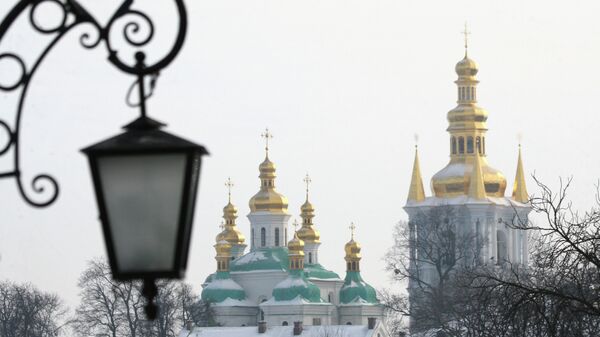"The schismatics remained schismatics, and the Church remained the Church. It was joyful and gratifying that the bishops, clergy and believers remained loyal to the Church. The Church has manifested its unity. It is regrettable that there were few ones that went into schism, and also that this schism was supported by the Patriarchate of Constantinople. But no matter how hard they tried to proclaim the schism as the Church, and non-canonical as canonical, the Body of the Church of Christ will not accept this, because the structure that was created yesterday was and is an extraneous body that is rejected and not accepted by the Body of the Church," Archpriest Mykolay Danylevych, the deputy chairman of the UOC-MP Department for External Church Relations (DECR), wrote on Facebook Sunday.
According to the UOC spokesman, Saturday's "unification council" was in no way related to church life.
READ MORE: Constantinople Patriarch to Give Tomos on Ukraine's 'New Church' Autocephaly
Following the unification council, the Estonian Orthodox Church of the Moscow Patriarchate (EOC-MP) also did not recognize its results. Metropolitan of Kiev and All Ukraine Onufriy was and remains the legitimate head of the Ukrainian Orthodox Church, despite the creation of the "new church" in Kiev, spokesman for the EOC-MP Archpriest Daniel Lepisk said.
"Metropolitan Onufriy as he was and remained for us the legitimate head of the Ukrainian Orthodox Church, and in this respect, nothing has changed for us. These 'churches' [organizers of the 'council'] were considered schismatic even before that. From the fact that instead of two old churches they created one new, the essence has not changed," Lepisk noted.
He recalled that the Synod of the EOC-MP back in October strongly condemned the anti-canonical acts of the Constantinople Patriarchate in Ukraine, noting that heavy damage would be inflicted to Ukraine’s Orthodoxy, and Ukrainian Orthodox believers would be discriminated against and deprived of their cathedrals and monasteries.
At the same time, the Russian Orthodox Church (ROC) said the canonical meaning of the "council" in Kiev was insignificant, and the possibility of recognizing Epiphany in the Orthodox world was a task "hardly possible to fulfil."At the same time, Belarusian and Bulgarian Orthodox churches also called the new structure non-canonical and schismatic.



